All-Nighter Survival Guide
Disclosure: By clicking on the product links in this article, Mattress Nerd may receive a commission fee at no cost to you, the reader. Read full disclosure statement.
How to Get Through an All-Nighter
When people think of all-nighters, they usually think of students cramming for exams. It’s true that all-nighters are common on college campuses. According to Medical News Today, 1 in 5 college students pull an all-nighter at least once a month and a third stay up past 3 a.m. at least once a week. So, it’s probably no surprise to hear that a whopping 60 percent of college students have what researchers call “disturbed sleep-awake patterns.”
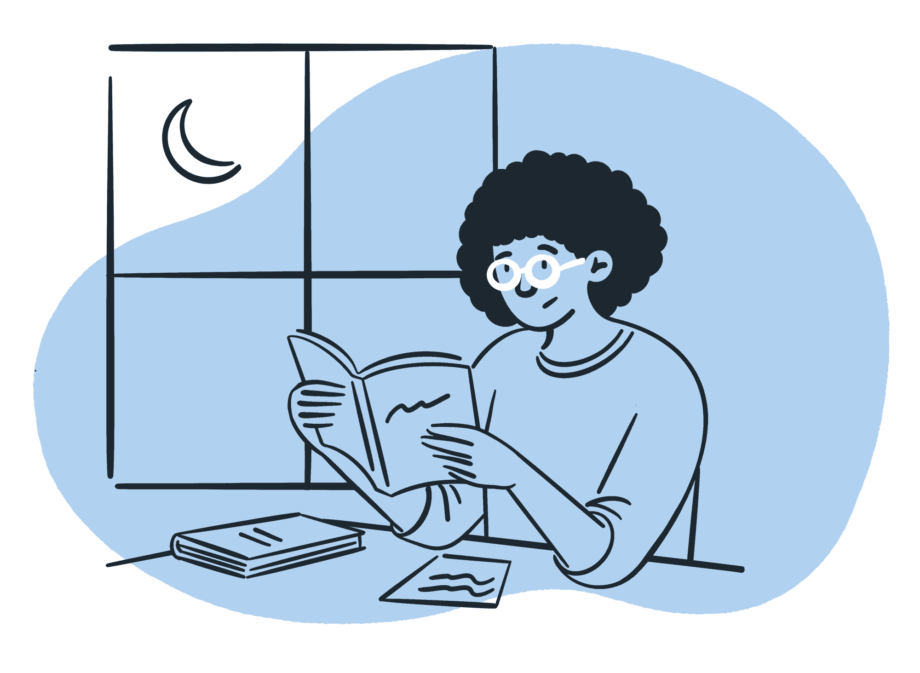
Let’s face it: Depriving yourself of sleep is not a good idea. But chances are, everyone has pulled an all-nighter at some point in their lives—and they may do so again—either by choice or chance. Some other reasons include:
- Childhood sleepover
- Preparing for a big project at work
- Shift work
- Caring for a sick family member
- Binge-watching a favorite streaming television series
- Participating in a military exercise or assignment
Staying awake all night long isn’t easy because your body fights you to sleep. Our bodies have two different systems that determine sleep drive, or the phenomenon that increases the likelihood of you falling asleep at a certain time—the circadian rhythm (the body’s internal 24-hour clock) and sleep/wake homeostasis (which senses a greater need of sleep the longer you are awake). These systems, along with environmental cues, such as the sun setting, can pull against your desire to stay awake when pulling an all-nighter is necessary.
So how can you fight the urge to sleep in order to get through an all-nighter? Consider these tips:
- Bank some sleep: If you know in advance you’ll be staying up all night, be sure the night before you get plenty of sleep. It’s far more unpleasant if you go into an all-nighter feeling sleep deprived.
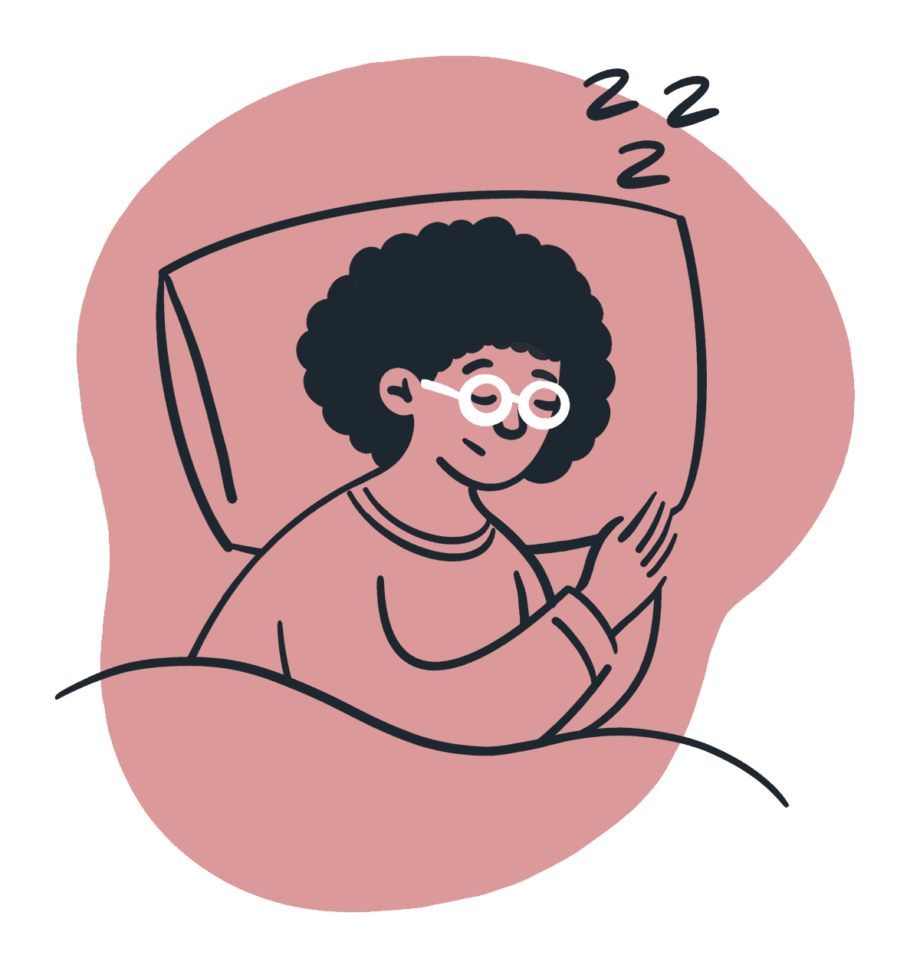
- Take “prophylactic naps”: These naps are taken the day before you plan to burn the midnight oil. According to nap expert Dr. Sara C. Mednick, the best prophylactic nap is 90 minutes long because it enables you to go through a full cycle of sleep and past REM sleep, which helps you avoid the so-called “sleep inertia,” the grogginess you feel when you wake from a deep sleep.
- Caffeinate: Load up on caffeinated sodas, coffee or energy drinks to keep your body and mind stimulated for the overnight haul. But ingest wisely. Gulping a big dose of caffeine at one time can lead to an energy crash. Instead, drink frequent, smaller doses of caffeine throughout the night.
- Hydrate. Staying hydrated is important whenever you’re awake, but especially if you consume a lot of coffee or other caffeinated drinks. Caffeine acts as a diuretic, making you urinate more than usual, which can be dehydrating.
- Move your body. Aerobic exercise causes the body to release endorphins, chemicals that increase brain activity and can help keep you alert and awake. In fact, exercising is discouraged too close to bedtime because it can actually prevent you from falling asleep.
- Make yourself uncomfortable. One way to keep you from nodding off is by stimulating your pain receptors. One way to do this is by pinching yourself. A less painful option is splashing a little cold water on your face or even taking a cold shower.
- Invite friends to join you. Having someone to chat with throughout the night or join you in a jog around the room when you’re overcome with sleepiness can help keep you awake. You can also take turns nudging the other when you accidentally drift off to sleep.
- Brighten your night. The circadian system is highly sensitive to lighting, especially daylight. But when you’re pulling an all-nighter, you won’t have much daylight to work with. Be sure your room is well lit.
- Chew gum. The mere act of chomping on a piece of gum has been shown to increase alertness when people are bored. It does this by increasing blood flow to the head. And since it’s a voluntary motion, it stimulates the brain. Mint-flavored gum may be the best choice as mint has been shown to increase cerebral activity and possibly improve memory.
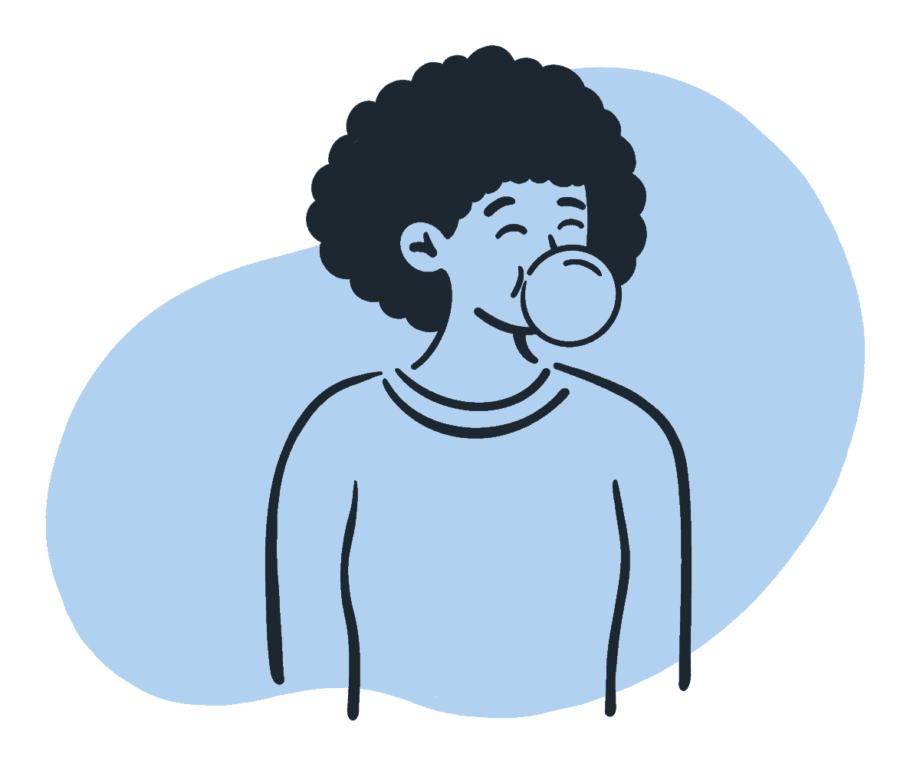
Understanding the Effects of Pulling An All-Nighter
You don’t have to have all-nighter experience to know that staying up all night can leave you groggy the next day. For those rare occasions when you must work through the night, we created this All-Nighter Survival Guide to help you stay focused through the night and recover quickly so you can get your sleep—and your life—back on track.
All Nighters and Sleep
In 1963, 17-year-old Randy Gardner challenged himself to stay awake for 11 days and break a world record. After the first day, his vision began to blur and his movements became uncoordinated. By day three, his memory began failing him. Toward the end of his experiment, he was hallucinating. Luckily, after a 14-hour sleep, he recovered. Gardner’s multi-nighter is not the norm, but it does show how depriving yourself of sleep for an entire night can have serious ramifications. Here’s a closer look at how all-nighters can affect you:
Sleep Deprivation
The Centers for Disease Control and Prevention (CDC) recommends that adults get at least 7 hours of sleep each night, yet only about 1 in 3 actually do. When you don’t get enough sleep at night, you can feel the effects the next morning—fatigue, irritability, moodiness, difficulty focusing.
Pulling an all-nighter pushes your body into a sleep deficit, making those next-day symptoms even more pronounced. Staying awake even longer can drive you to “sleep deprivation psychosis,” where your perception of reality becomes distorted and you become delusional and hallucinate.
When you stay up all night, you also throw your circadian rhythm out of whack. This means your brain sends mixed messages to your hormones making you feel hungry, achy and moody along with incredibly sleepy. If you give into the urge to sleep during the day, you can have difficulty falling asleep the next night, further exasperating your situation.
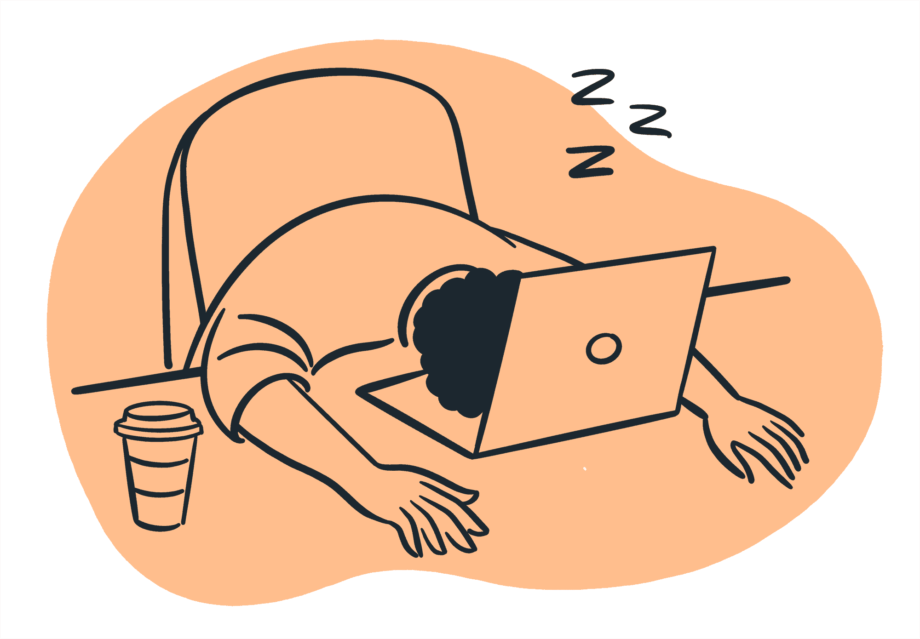
All Nighters and Your Cognitive Function
When you pull an all-nighter, you may be defeating the purpose of staying awake in the first place, according to a recent Texas A&M College of Medicine study.
For example, let’s say you’re pulling an all-nighter to prepare for an exam the next day. When morning comes, you drag into class expecting to rely on your short-term memory to pull you through. But you may find that the information you crammed in your brain has seemingly disappeared.
“Sleep deprivation’s effect on working memory is staggering,” said David Earnest, PhD,Texas A&M professor who studies circadian rhythms. “Your brain loses efficiency with each hour of sleep deprivation.”
Another study found that going 17 to 19 hours without sleep produces similar effects as having a blood alcohol level of 0.05 percent. Add a few more hours to that deficit, and the effects jump to that comparable to a 0.1 percent blood alcohol content. (For reference, the drunk driving limit in the U.S. is 0.02 percent.)
Pulling an all-nighter can also create false memories, delay decision making and cause you to take greater risks or make poor choices.
All Nighters and Mental Health
Depriving yourself of sleep takes a toll on your emotional mood, too. You are more apt to be cranky and irritable, and less able to handle stress. Insufficient sleep increases levels of cortisol, a hormone associated with stress, making you more prone to experience symptoms of anxiety and depression.
A recent University of California, Berkeley study found that sleepless nights can boost anxiety levels by up to 30 percent. But a night of sufficient deep sleep appears to quell those symptoms.
“We have identified a new function of deep sleep, one that decreases anxiety overnight by reorganizing connections in the brain,” said study senior author Matthew Walker, a UC Berkeley professor of neuroscience and psychology. “Deep sleep seems to be a natural anxiolytic [anxiety inhibitor], so long as we get it each and every night.”
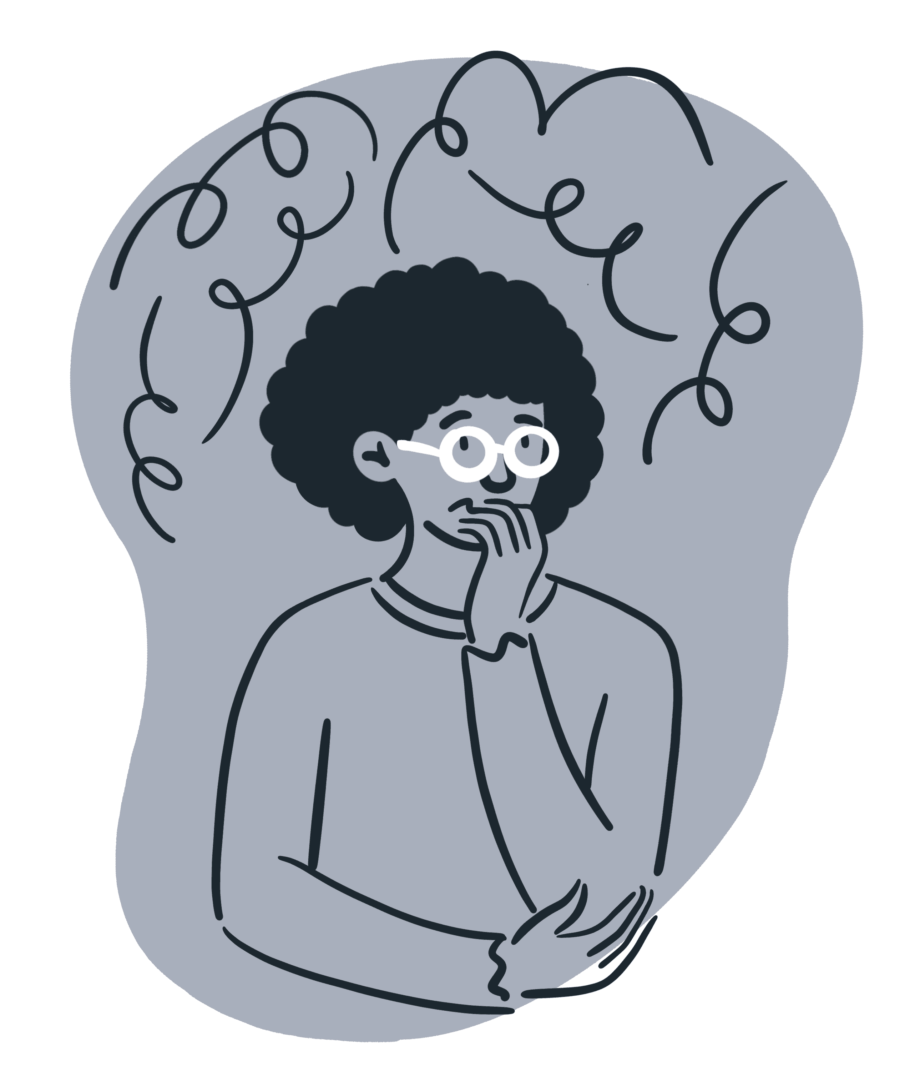
All Nighters and Physical Health
When you deprive yourself of sleep, you deprive your body the opportunity to repair and restore cells and tissues. You also deprive your brain time to remove toxins, and store memories and emotions. This zaps your energy, creates fatigue, and makes it difficult for you to concentrate or think clearly. You also become more sensitive to pain.
Frequent all-nighters can take an even great toll on your physical health by:
- Compromising your immune system and making you more prone to infections
- Triggering the release of insulin, which puts you at an increased risk for weight gain and type 2 diabetes
- Affecting the processes that maintain blood pressure and inflammation, increasing your risk for heart disease
- Interfering with the production of hormones that affect stress and fertility
- Putting you at risk for addictive behavior due to using stimulants (nicotine, amphetamines or ADHD medication) to keep you awake or depressants (alcohol, sleeping pills, or Valium) to help you sleep
What can you expect to feel like after an all-nighter?
Surprisingly, you may feel bouts of energy or euphoria after pulling an all-nighter. According to a study in the journal Cerebral Cortex, the brain becomes more active when it’s sleep deprived and for a short period of time you may feel tired without feeling sleepy. But soon, you’ll be headed for the dreaded crash,and fatigue and irritability will kick in.The best way to handle a post-all-nighter crash is to recover smartly.
Recovering From an All-Nighter
You may not be able to avoid the misery that follows an all-nighter, but there are some things you can do to help you recover faster:
- Resist the snooze: If you decide to catch a few zzz’s toward the end of your all-nighter, resist the urge to hit the snooze button. Research shows the few extra minutes of rest don’t serve much purpose beyond that momentary pleasure.
- Eat breakfast: Studies have found that eating within an hour of waking boosts your mood and your brain. But stay away from sugary cereals or that frosted doughnut.
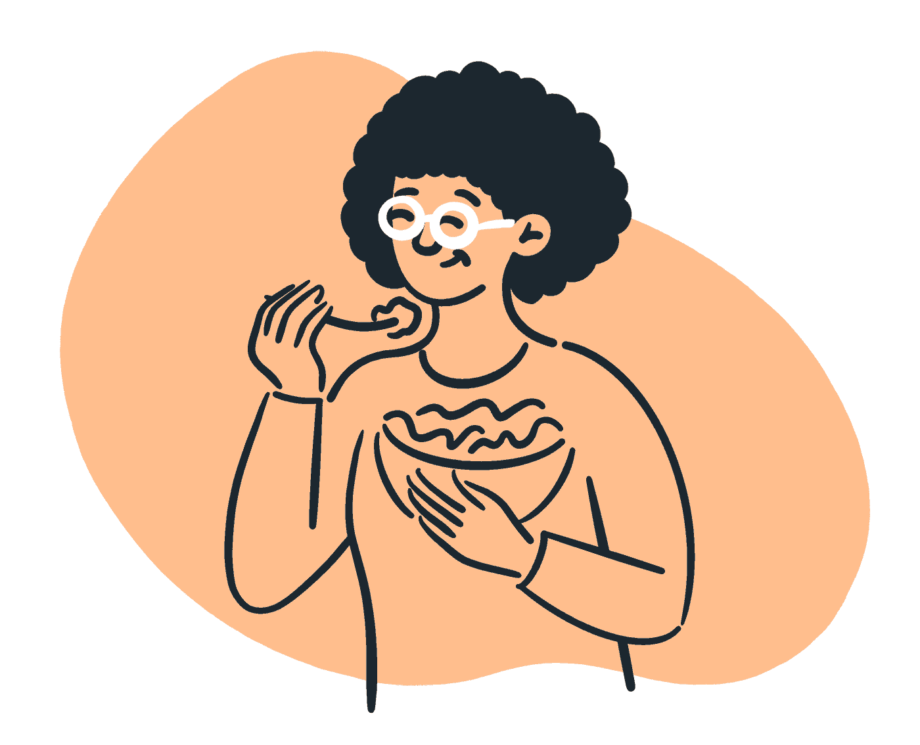
- Get outside: Bathing your body in natural sunlight raises your body temperature, boosts alertness, and helps your circadian rhythm get back on track.
- Prioritize and refuel: Plan your most important activities (tests, presentations, etc.) earlier in the day, and chug an extra cup of coffee or energy drink to give you an extra nudge of energy.
- Have a light lunch: Continue the momentum of the day by eating a light, healthy lunch. Heavy, sugary snacking will only make you crash harder later in the day.
- One last cup o’ joe: Have another cup of coffee in the early afternoon, if necessary, but avoid coffee later in the day. The caffeine may prevent you from falling asleep when you’re ready to go to bed.
- Stay hydrated. Remember, all that caffeine can work as a diuretic and have you running to the bathroom more than usual. Be sure you balance the caffeine by drinking some non-caffeinated beverages, like water.
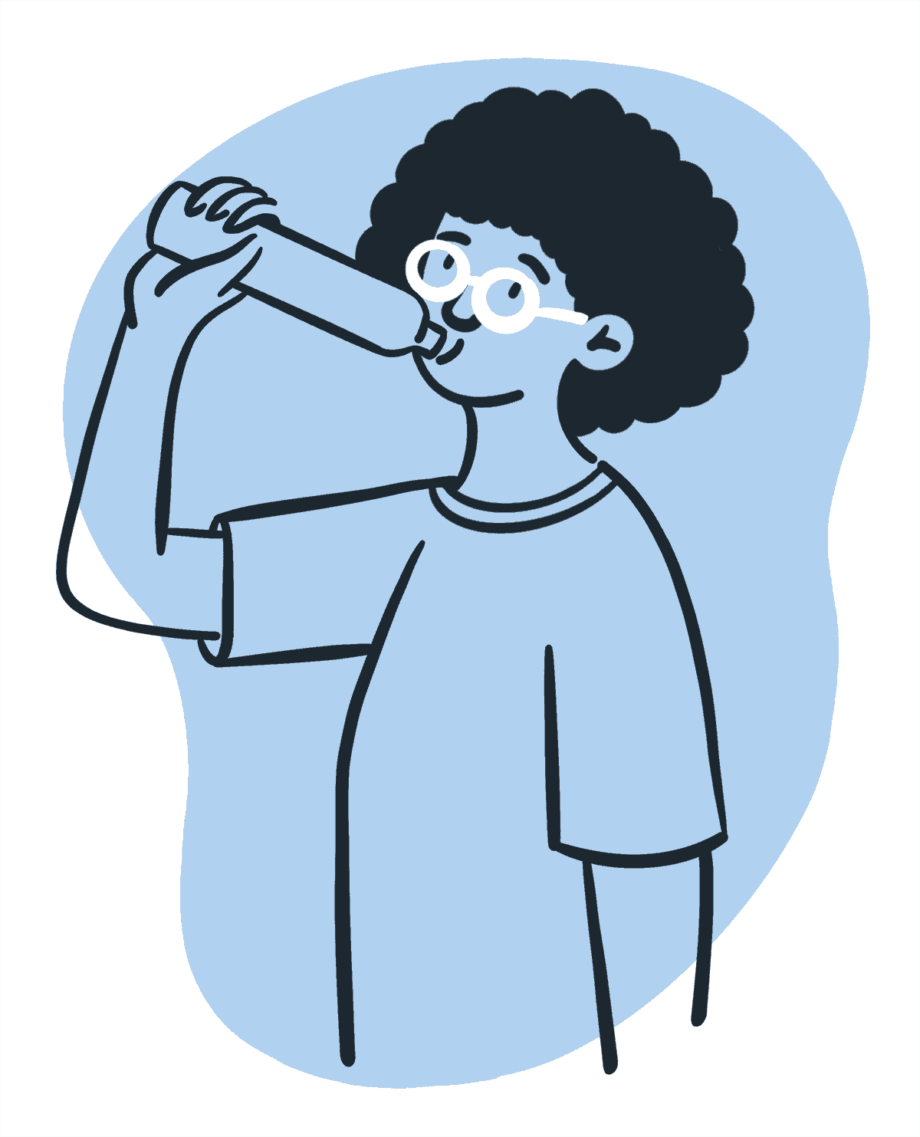
- Get moving: Aerobic exercise is a great way to get some extra energy because it releases endorphins, which increase brain activity and keeps you alert. Just don’t exercise too close to when you want to go to bed or else it may keep you from falling asleep.
- Avoid long naps: If at all possible, avoid napping and just go to bed a little earlier than usual. If you must nap, try to snooze for about 90 minutes (which gets you through a complete sleep cycle and avoids sleep inertia), and don’t nap too late in the day or it could make falling asleep at bedtime more difficult.
- Prioritize your hygiene: Don’t forget about your own personal hygiene for both you and the people around you. Take a shower, use deodorant, put on clean clothes, and don’t forget to brush your teeth.
Tips for Getting Your Sleeping Habits Back on Track
The best way to get your sleep back on track is to practice good sleep hygiene. Sleep hygiene involves your sleep environment and the behaviors you practice that impact your sleep. Here are some sleep hygiene tips you can put into practice to improve your sleep:
Make your bedroom a sleep sanctuary.
Your bedroom should be comfortable and conducive to sleep, with soft linens, a supportive mattress and the right pillow for your sleep position. You’ll want to make sure that you are finding the right mattress for your sleeping position and also one that fits your needs whether thats an affordable mattress, a cooling mattress, or by size preference.
Keep your cool
Before bedtime, drop the thermostat a few degrees lower than what it’s set at during the day. Experts say the sweet spot for most people is between 60 to 67 degrees Fahrenheit.
Drown out your senses
Use black-out shades to block out distracting light and a sound machine to mask outside noises.
Wind down
Take a warm bath or shower, read a book, or practice yoga or relaxation exercises before bedtime to help your body and your mind wind down.
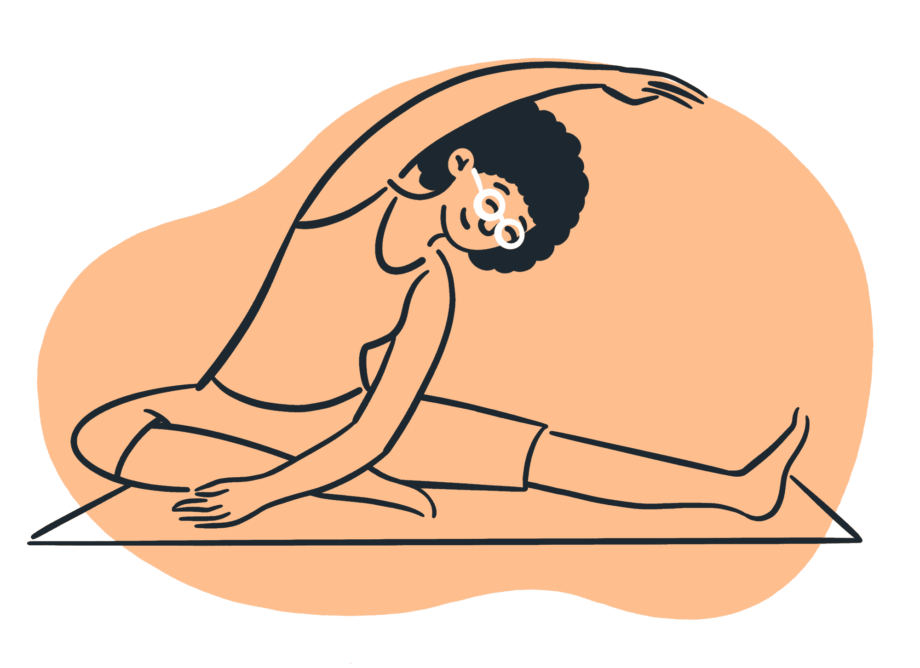
Avoid fussy foods
Eating spicy or acidic foods before bed can increase the risk of acid reflux, which can get much worse when you lie down to go to sleep. Also avoid heavy meals too close to bedtime.
Don’t overdo the nightcap
A glass of wine or a hot toddy before bedtime can help lull you to sleep. But having one too many can interfere with restorative REM sleep.
Stick to a schedule
Setting a regular bed and waking up time, and sticking with it day after day, can help regulate your circadian rhythm and make falling asleep and waking up feel more natural.
The Takeaway
If you find yourself in a situation where staying up all night is necessary, make your health a priority. Being proactive by preparing the day before can help you get through your all-nighter without crashing too hard. Bank some sleep time by taking a good nap and stock up in avance on caffeinated beverages and healthy snacks.
Continue making wise choices during your post-all-nighter hours by fueling up with a low-sugar breakfast, getting some exercise and bathing in natural sunlight. And be diligent in maintaining a regular sleep schedule, when possible.
Bottom line: When it comes to pulling an all-nighter, the best advice is to avoid them.


